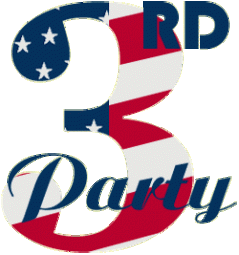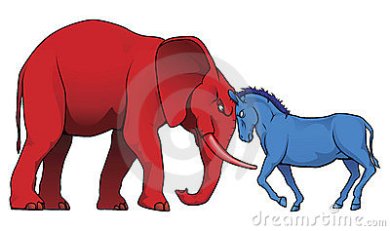The focus of government in the third trimester has greatly widened my knowledge of the United States democracy and the components that make our government work smoothly. Class activities have helped enrich my understanding as a student because when I research and do the work to find information about a subject myself, I seem to grasp the information better and enjoy it. Interactive tasks such as topical debates centered around the Constitution, reading and questioning of Government representation and the research of presidential campaigns/voting polls have all helped me understand the depth of our government.
In trimester three I enjoyed the project concerning presidential campaign commercials the most. According to television producer and Nixon campaign consultant Roger Ailes in 1968, the purpose of Presidential campaigns is to gain beneficial exposure to the public. He said, “Television is no gimmick, and nobody will ever be elected to major office again without presenting themselves well on it.”
The investigation of techniques used in these interested me because I had never been forced to ponder over the skills necessary to execute a successful ad before. Broadly speaking, this is an example of how the class exercises have led me to become involved and informed about various aspects of government. I think the reason that the presidential ads were one of the most exciting parts of all the assignments for me is because I have seen many political ads on TV at home throughout the years; however, I had never thought twice about the underlying meaning and purpose of the content in each one. As I worked on the project, viewing the political commercials of Nixon vs. McGovern and Bush vs. Gore, I realized that the use of persuasion seemed to be the most important of them all. As said by our 16th President, “When the conduct of men is designed to be influenced, persuasion, kind unassuming persuasion, should ever be adopted.” –Abraham Lincoln. The quote helps me understand that in politics that the motive of persuasion is important among people in order to help them understand issues and develop ideas about what they desire. This relates to the assignment of Presidential Campaign commercials as I had found numerous examples of effective persuasion in each. After all, the purpose of the ads is to draw voters nearer to believing what they want them to believe… this, the definition of persuasion.
This long time push for Presidential campaign commercials doesn’t always receive positive feedback from viewers. After researching and reading various polls such as this one shown below, it makes me more interested in trying to decipher what makes a good, effective ad.
This poll shows that people tend to believe positively charged commercials more than negatively ones. When I was viewing my assigned commercials during a class activity, I noticed 2 of the 3 were favorable support for the direct candidate, not solely targeting their opponent. After researching, I found that positive persuasion is one of the most important factors of a successful political campaign because after all, it is the public’s view that decides whether the ad is successful or not. I personally agree with this poll and the studies that show that commercials and ads that encourage the presidential candidate are more uplifting and believable. Positively charged commercials seem to have an aura that promotes success, and this is what is memorable for viewers. At the end of the day it is viewers like you and I, who determine whether a campaign commercial has achieved their purpose: grasping the attention and support of the voter watching.






 All of the things that I learned about this were very interesting to me because of the fact that it was something that is so big in America. While it is evident most people are with one party or hates the other, these two parties are what keep the government flowing and functioning the way it should.
All of the things that I learned about this were very interesting to me because of the fact that it was something that is so big in America. While it is evident most people are with one party or hates the other, these two parties are what keep the government flowing and functioning the way it should. 



